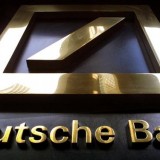
Posted on 24 February 2015.
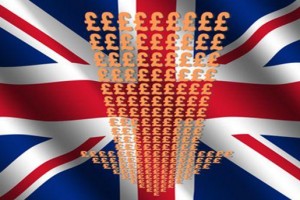 British retail sales sharply dropped in February, as their volume reached its lowest level since November 2013. The key reason for this weaker sales of food, showed a study published on Monday. The volume of retail sales and orders disappointed in February, but shopkeepers are still optimistic that they will increase in March. This new study shows the Confederation of British Industry (CBI).
British retail sales sharply dropped in February, as their volume reached its lowest level since November 2013. The key reason for this weaker sales of food, showed a study published on Monday. The volume of retail sales and orders disappointed in February, but shopkeepers are still optimistic that they will increase in March. This new study shows the Confederation of British Industry (CBI).
In its monthly distributive trades survey for CBI notes that poor sales of food and department stores led the monthly balance of sales to fall to +1% to +39% last month and well below expectations.
‚ÄúAfter a strong start of the year traders were disappointed by the unexpected loss of sales growth. Mostly continued strong reduction of prices in the food sector seems interfere with activity. Looking forward, the outlook for the sector, with retail sales is relatively positive, the increase in household income due to slowing inflation will most likely continue to encourage spending. However, research shows that overall trading conditions remain challenging‚ÄĚ, said the CBI report.
CBI survey is the first look at the data for the sector in February. Official data will be published in March.
Posted in Comments, Finance

Posted on 24 February 2015.
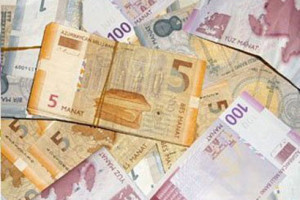 Another member of the Commonwealth of Independent States (CIS) devalue its currency. Azerbaijan devalued its currency with 35%. The official rate of the Azerbaijani Manat against the USD set by the Central Bank on 21st February 2015, was 1.05 manats for 1 USD, compared to 0.7862 manats for 1 USD a day earlier.
Another member of the Commonwealth of Independent States (CIS) devalue its currency. Azerbaijan devalued its currency with 35%. The official rate of the Azerbaijani Manat against the USD set by the Central Bank on 21st February 2015, was 1.05 manats for 1 USD, compared to 0.7862 manats for 1 USD a day earlier.
‚ÄúThis decision was taken in order to promote diversification of the economy of Azerbaijan, to strengthen the international competitiveness and export potential, to ensure the sustainability of the balance of payments‚ÄĚ, said in a statement the central bank. The course Azerbaijani Manat against the single EUR also fell. The official exchange rate for 21st February 2015 was 1.1950 per EUR at 0.8934 per EUR a day earlier.
The devaluation of Azerbaijani currency was expected by the market, as representatives of the central bank has repeatedly stated that the plan more flexible exchange rate for its currency. However, the governor Elman Rustamov said that any weakening of Azerbaijani Manat will be soft. In his words, there is no reason for a prolonged weakening of the currency. The institution simply seek to follow global trends in devaluation to boost exports.
On 16th February 2015 the Azerbaijan Central Bank moved to using a basket of currencies in determining the amount of manat. The USD share in it is 70%, while the remaining 30% goes towards the EUR.
Posted in Currencies, Finance

Posted on 24 February 2015.
 Bank of Israel decreased main interest rate with 0.15 percentage points to a record low of 0.10% to fight persistently low consumer prices. The base interest rate of Israel was at the level of 0.25% since September. While some analysts expect a decrease of interest in the coming months, the market consensus was that the bank will leave unchanged the level in March. The surprising move comes amid declines in interest rates in Asia and the program of quantitative easing from the European Central Bank. After the news, the dollar rose 1.4 percent to 3.91 shekels.
Bank of Israel decreased main interest rate with 0.15 percentage points to a record low of 0.10% to fight persistently low consumer prices. The base interest rate of Israel was at the level of 0.25% since September. While some analysts expect a decrease of interest in the coming months, the market consensus was that the bank will leave unchanged the level in March. The surprising move comes amid declines in interest rates in Asia and the program of quantitative easing from the European Central Bank. After the news, the dollar rose 1.4 percent to 3.91 shekels.
Central Bank of Israel officially announced that it took the decision because of the continuing decline in consumer prices, the appreciation of the local currency - Sheqel, and lower interest rates globally. The bank said that after the decline in consumer prices in January by 0.9% monthly and 0.5% yearly inflation expectations remain below the target range of Government of between 1% and 3% annual inflation. The decline in consumer prices was mainly due to lower energy prices.
Although Israeli New Sheqel depreciated against the US dollar at the end of 2014, he again began to gain momentum in January - something that the bank may weigh on growth in the export sector, and more expensive imports.
Posted in Economy, Finance

Posted on 23 February 2015.
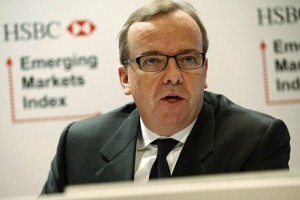 The CEO of HSBC has account of 5 million GBP in Swiss branch of the bank, where hold his bonuses. In response to a question from The Guardian Bank pointed out that Stuart Gulliver has 5 million GBP in the account that controls using a Panamanian company. By HSBC highlighted, however, that the CEO lives in Hong Kong, pay taxes there and owes nothing to the British Treasury. The statement did not mention Panamanian company. The details of the account of Gulliver came the same day that HSBC publishes its annual results.
The CEO of HSBC has account of 5 million GBP in Swiss branch of the bank, where hold his bonuses. In response to a question from The Guardian Bank pointed out that Stuart Gulliver has 5 million GBP in the account that controls using a Panamanian company. By HSBC highlighted, however, that the CEO lives in Hong Kong, pay taxes there and owes nothing to the British Treasury. The statement did not mention Panamanian company. The details of the account of Gulliver came the same day that HSBC publishes its annual results.
The article in The Guardian does not indicate any wrongdoing on the part of Gulliver, but the news lead to more questions about the activities of HSBC in business consulting. Earlier this month British bank acknowledged gaps in its Swiss subsidiary in response to media reports that the company has helped wealthy clients hide assets and taxes for millions of dollars.
‚ÄúWe recognize and acknowledge the problems with compliance control‚ÄĚ, indicated by HSBC, after influential media, including the French newspaper Le Monde and The Guardian, published materials on its Swiss subsidiary. British newspaper cited documents from the International Consortium of Investigative Journalists by Le Monde. By HSBC said in response that its Swiss unit has not been fully integrated after buying it in 1999, allowing the observance of ‚Äúsignificantly lower‚ÄĚ standards.
The documents showed that 74 related to Bulgaria persons hold accounts in the Swiss branch of British bank. According to 11 percent of the 74 associated with our country people have Bulgarian citizenship, or about eight. The information was disseminated by the International Consortium of Investigative Journalists - an association that includes independent journalists from 45 countries. The organization started a few days to export data from a major investigation codenamed Swissleaks, conducted jointly with the French daily Le Monde. Site of the consortium were published data on more than 106,000 customers in 203 countries evade taxes for deposits worth over 100 billion USD in accounts in HSBC.
Posted in Business, Finance

Posted on 23 February 2015.
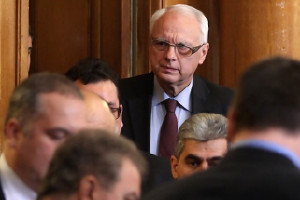 In January, which is traditionally the most grateful tax revenue month of the year, the British public balance on surplus of 8.8 billion GBP in January, the largest of January 2008, according to data of the Office for National Statistics (ONS). The surplus was generated primarily by the increase in income tax and capital gains tax. However, corporation tax and VAT receipts also rose, while state taxes have decreased, said ONS. Besides this surplus in January was 2.3 billion GBP more than in the same month last year.
In January, which is traditionally the most grateful tax revenue month of the year, the British public balance on surplus of 8.8 billion GBP in January, the largest of January 2008, according to data of the Office for National Statistics (ONS). The surplus was generated primarily by the increase in income tax and capital gains tax. However, corporation tax and VAT receipts also rose, while state taxes have decreased, said ONS. Besides this surplus in January was 2.3 billion GBP more than in the same month last year.
According to the Office for Budget Responsibility (OBR) targets government tax revenues this year are 91.3 billion GBP, which is about 6.3 billion GBP less than in the previous financial year. According to the authorities, this will be the second smallest decline since the peak in 2009-2010 OBR explained that this was mainly due to slower wage growth and low productivity in the labor market.
Today’s ONS data also showed that the total debt amounted to 1.6 trillion GBP at the end of January, which is equivalent to 86.2% of the total gross domestic product. Immediately after the presentation of the GBP is exchanged for 1.5372 USD.
Posted in Economy, Finance

Posted on 23 February 2015.
 The business activity in Eurozone rose in February, showed the preliminary data of Markit Economics, published on Friday. The news is a sign that the region‚Äôs economy is improving slightly, while politicians struggle with the dual threat of falling prices and renewed uncertainty about the future of Greece in the Eurozone. The index of purchasing managers for the currency bloc rose to 53.5 points in February from 52.6 points a month earlier. The achieved level is the highest in the last seven months. All values ‚Äč‚Äčabove 50 indicate expansion of business.
The business activity in Eurozone rose in February, showed the preliminary data of Markit Economics, published on Friday. The news is a sign that the region‚Äôs economy is improving slightly, while politicians struggle with the dual threat of falling prices and renewed uncertainty about the future of Greece in the Eurozone. The index of purchasing managers for the currency bloc rose to 53.5 points in February from 52.6 points a month earlier. The achieved level is the highest in the last seven months. All values ‚Äč‚Äčabove 50 indicate expansion of business.
The economic growth is increasingly necessary and is likely to receive a further boost in the coming months. The prices of goods and services, however, continue to fall, highlighting the challenge to the European Central Bank (ECB) in its efforts to accelerate the annual inflation in the euro area back to its target of just below 2%. The inflation in the block slowed to 0.6% yoy in January, prompting the ECB to announce the beginning of the program of quantitative easing from May.
Eurozone finance ministers meet in Brussels on Friday for a new attempt to end the impasse between the new far-left government of Greece and its creditors from the Eurozone. Athens holds a position that requires termination of austerity imposed as a condition of the hundreds of billions of EUR in aid. Led Germany creditors, however, are adamant that Greece should press ahead with much needed reforms to revive its economy problem.
Immediately after the presentation of the one EUR was exchanged for 1.1319 USD.
Posted in Business, Finance

Posted on 23 February 2015.
 Common US stocks of crude oil grew reaching 425.6 million barrels last week, climbing nearly 80-year high. This is another signal that commodity prices will remain low amid global oversupply. The US WTI crude oil fell sharply on Friday, although the data showed that production platforms in the US fell for another week. The rate of decline, however, was lower than previously projected. The crude oil with April delivery dropped with 1.97% to close the week at 50.81 USD per barrel. Weekly traded in New York futures sank with 5.33%, taking into account its first weekly loss in the last month.
Common US stocks of crude oil grew reaching 425.6 million barrels last week, climbing nearly 80-year high. This is another signal that commodity prices will remain low amid global oversupply. The US WTI crude oil fell sharply on Friday, although the data showed that production platforms in the US fell for another week. The rate of decline, however, was lower than previously projected. The crude oil with April delivery dropped with 1.97% to close the week at 50.81 USD per barrel. Weekly traded in New York futures sank with 5.33%, taking into account its first weekly loss in the last month.
Research group Baker Hughes said Friday that the number of production platforms in the US declined by only 37 in the past week - the smallest weekly decline this year, compared with a fall of 84 platforms in the previous week. The number of rigs for production in the United States now stands at 1019, which is the lowest level since August 2011 volume fell in 16 of the past 19 weeks, after hitting a record high of 1609 in mid-October.
Meanwhile London Brent with delivery in April fell slightly by 0.02% to 60.22 USD per barrel in late trading. The cost of the April contracts slid with 2.11% for the week ending the three consecutive weeks of growth. Although weekly loss Brent rose by over 11% in February, after some investors bet the negative end of the series, which began in mid-2014. Thus the spread between raw material traded in London and WTI reached 9.41 USD per barrel at the end of trading on Friday compared to 8.74 USD the previous week.
The crude oil prices have fallen sharply in recent months, after OPEC resisted calls to reduce production and the US started to gain the fastest pace in more than three decades, creating a glut of global supplies.
Posted in Commodities, Finance

Posted on 22 February 2015.
 Greece offered reforms to creditors with fight against corruption and restructure state-owned enterprises. The Greek Ministry of Finance sent a letter to international creditors with the reform measures that the government of Alexis Tsipras will take. Athens expects to receive tonight relevant remarks to take them into account in the final list, which the cabinet will present tomorrow. The measures are in the form of policy proposals. They are referred to the ways in which the government will fight corruption and restructure state-owned enterprises.
Greece offered reforms to creditors with fight against corruption and restructure state-owned enterprises. The Greek Ministry of Finance sent a letter to international creditors with the reform measures that the government of Alexis Tsipras will take. Athens expects to receive tonight relevant remarks to take them into account in the final list, which the cabinet will present tomorrow. The measures are in the form of policy proposals. They are referred to the ways in which the government will fight corruption and restructure state-owned enterprises.
Greek Finance Minister Yannis Varoufakis expressed confidence that the list will be approved by the European Commission, the European Central Bank and the International Monetary Fund. On Friday, Greece and its creditors from the Eurozone agreed to extend the rescue program for the country. In order to obtain the remaining tranches, however, the Greek government must present a series of economic reforms, which must be approved by the creditors.
Posted in Economy, Finance

Posted on 22 February 2015.
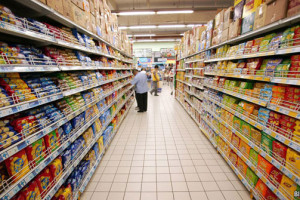 China will become the biggest retail market overtaking USA in next three years, according to a new World Bank report. Turnover in retail trade in the Asian country will rise by 7.9% in 2018 compared to growth of 2.6% in North America and the world average 3.4%, states the joint study of the World Bank, consulting firm PwC and Economist Intelligence Unit (EIU). Look at trends in China reveals that the pace of growth declined over the years, but the figures are much higher than other countries.
China will become the biggest retail market overtaking USA in next three years, according to a new World Bank report. Turnover in retail trade in the Asian country will rise by 7.9% in 2018 compared to growth of 2.6% in North America and the world average 3.4%, states the joint study of the World Bank, consulting firm PwC and Economist Intelligence Unit (EIU). Look at trends in China reveals that the pace of growth declined over the years, but the figures are much higher than other countries.
‚ÄúDespite its slow growth China remains invulnerable to global trade links. Although the annual growth rate of turnover in retail trade dropped by 15.6%, as it was in 2009, is expected in the next two years for China to achieve average growth of 8.7%‚ÄĚ, the report said.
As home to 19% of the world population, the rise of Chinese consumers has become extremely important in the last decade, thanks to higher wages, growing urbanization and improving standards of living. By 2022, 75% of the population in mainland China will be middle class to share from 4% in 2012, according to the consulting firm McKinsey. Businesses took note. In 2014, foreign direct investment in China soared to 128 billion USD, which overtook the US for the first time in a decade, it became clear in January at the Conference on Trade and Development United Nations. International markets fear the expected slowdown in Chinese economic growth after the 2014 Asian country GDP expanded only by 7.4%. The pace was the slowest since 1990. However, PwC and EIU believe that such fears are exaggerated.
Traders, however, may also rely on other countries, not just China. Estimates are that the revolutions in Asia will soar 10.3 trillion USD in 2018, which is twice higher than the estimate for North America. After China, the growth of trade turnover will be the highest in India - 6.6% in 2018, followed by Vietnam and the Philippines. The chances of India to catch up with China are small, the study states. The lack of reforms and the government’s refusal to open the market to retail goods to foreign investors means that global traders cashing lost profits, as expected in 2015 volumes in India to transfer 1 trillion USD.
Posted in Economy, Finance

Posted on 12 February 2015.
 The Austrian mobile operator Telekom Austria reported a drop in quarterly revenues by 4% on an annual basis for the whole group. For the last quarter of 2014 revenues were 1.03 billion EUR published Wednesday showed financial results for the group. In Austria the main reason for the decline in revenue due to lower monthly bills and fees for traffic by 3.6%. Another negative factor is the new regulatory interventions which have claimed 77 million EUR of the company. Earnings per share decreased by 0.10 EUR for the fourth quarter of 2014 and 0.46 EUR for the year.
The Austrian mobile operator Telekom Austria reported a drop in quarterly revenues by 4% on an annual basis for the whole group. For the last quarter of 2014 revenues were 1.03 billion EUR published Wednesday showed financial results for the group. In Austria the main reason for the decline in revenue due to lower monthly bills and fees for traffic by 3.6%. Another negative factor is the new regulatory interventions which have claimed 77 million EUR of the company. Earnings per share decreased by 0.10 EUR for the fourth quarter of 2014 and 0.46 EUR for the year.
In Central and Eastern Europe the main driver of the good results is Belarus. Inflation-linked price increases led to strong operational performance. In 2014, like in the previous telecom market in Bulgaria was negatively influenced by the weak macroeconomic environment and political instability, which reduces power consumption and shrinking revenues of companies. Despite these unfavorable trends Mtel maintain a positive trend growth in customers and mobile TV services.
Despite the positive effect of the steady growth in mobile data revenues for the entire 2014 decreased by 7.1% to 371.3 million EUR negatively affected by price reductions for end customers and termination fees. Although overall cost optimization company, operating profit in 2014 decreased by 9.8% to 143.1 million EUR as a result of adverse economic conditions in the country. Announced on Wednesday data show that Mtel reported overall growth in mobile customers - mobile telephony and the Internet, which grew by 1% to over 4.2 million EUR. Large increases were observed for individual clients using packet voice services mobile Internet. Their number increased by 45% compared with 2013.
Average revenue per user of mobile communications declined from 6.3 EUR to 6.1 EUR in 2014 compared to 2013, largely driven by the decline in average income in the business segment, while average revenue per user for individual customers remains stable. The company reported an increase in revenues and fixed access lines. The average income of a line increased by 6.9% yoy and reached 14.4 EUR. Revenues from fixed services also rose, increasing by 1.4% to 26.6 million EUR. After the successful launch of DTH television, increase was observed in the number of customers using the services of telecom tv, and they increased by 8.2% during the period.
Posted in Business, Finance
 British retail sales sharply dropped in February, as their volume reached its lowest level since November 2013. The key reason for this weaker sales of food, showed a study published on Monday. The volume of retail sales and orders disappointed in February, but shopkeepers are still optimistic that they will increase in March. This new study shows the Confederation of British Industry (CBI).
British retail sales sharply dropped in February, as their volume reached its lowest level since November 2013. The key reason for this weaker sales of food, showed a study published on Monday. The volume of retail sales and orders disappointed in February, but shopkeepers are still optimistic that they will increase in March. This new study shows the Confederation of British Industry (CBI).




















